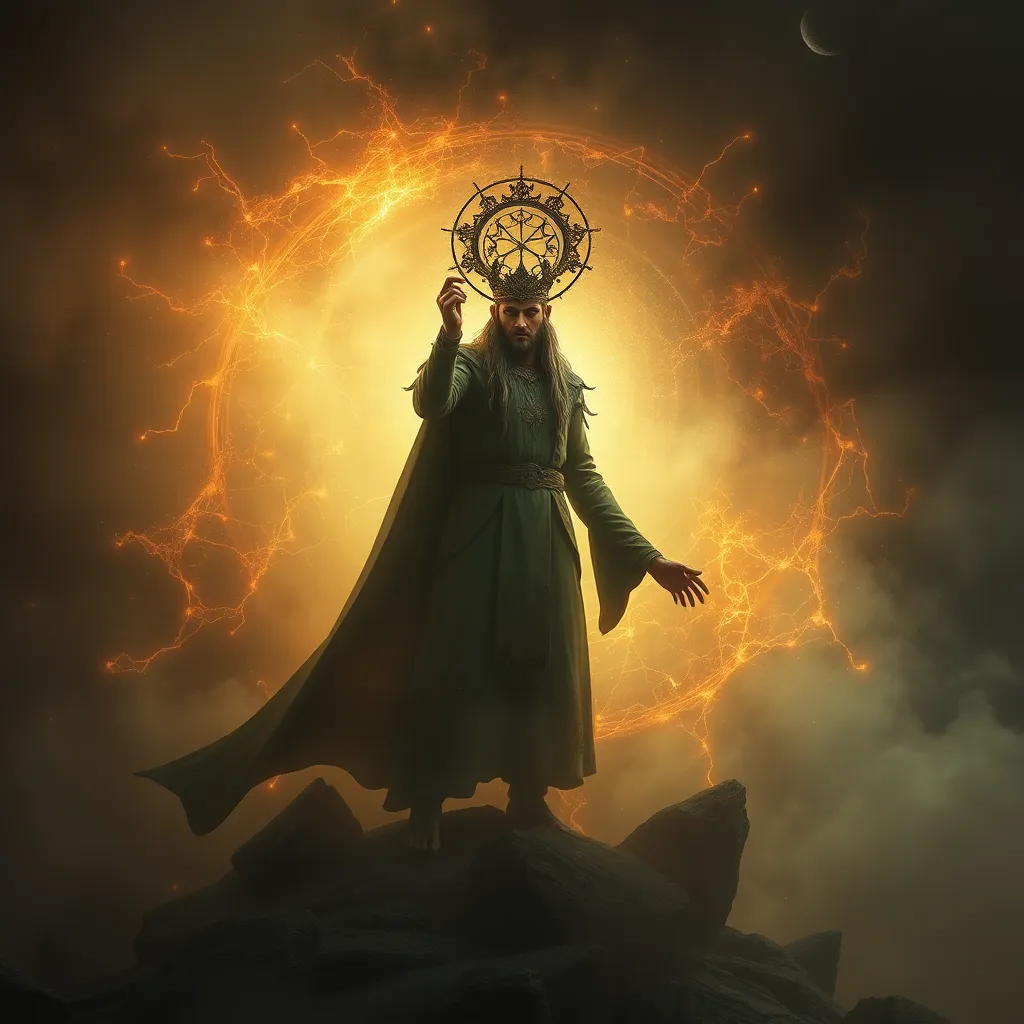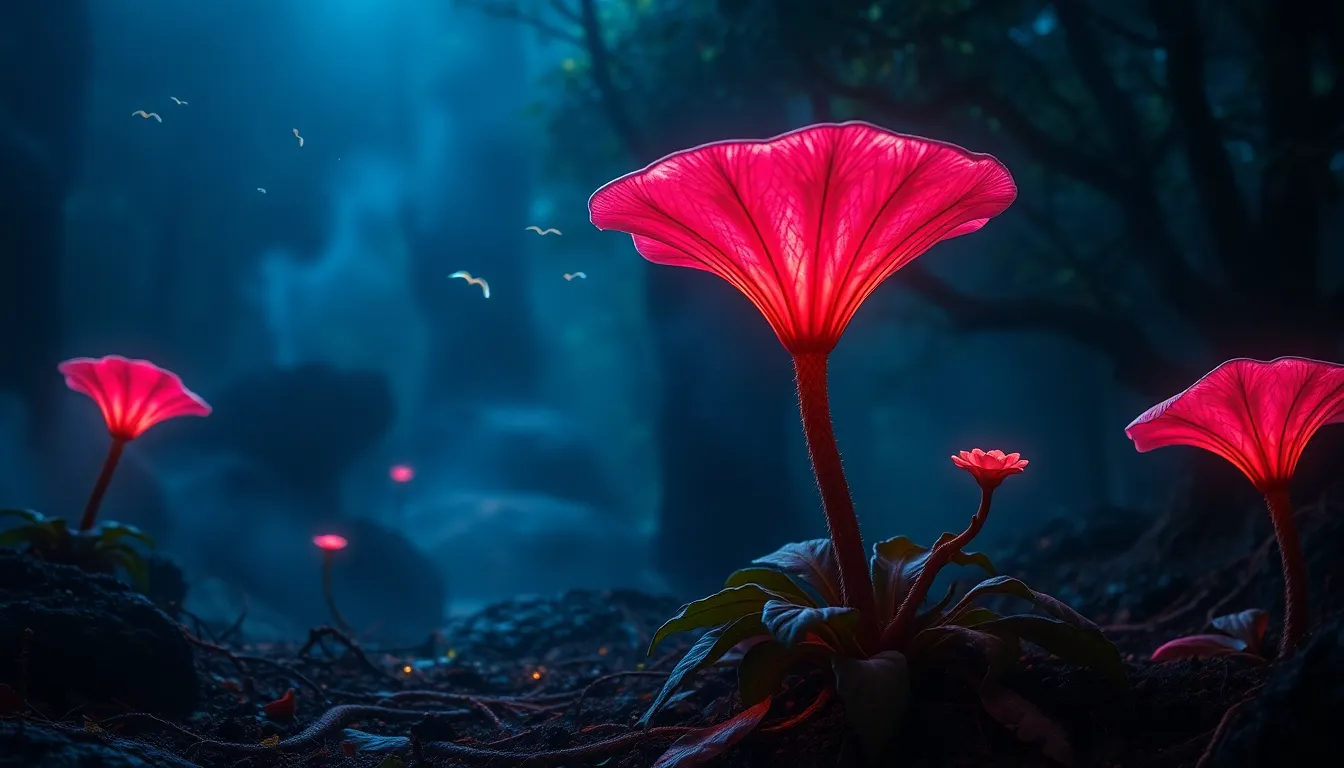Beyond the Slavic Realm: Koschei’s Global Echoes in Mythology
I. Introduction
Koschei the Deathless is a prominent figure in Slavic mythology, known for his role as an immortal antagonist who often seeks to capture the hero’s beloved. His legend is rich with themes of death, immortality, and the struggle between good and evil. While primarily rooted in Slavic culture, exploring Koschei’s influence reveals intriguing parallels and connections with mythologies from around the world.
This article aims to delve into the significance of Koschei beyond the Slavic realm, examining his origins, thematic elements, and the archetypal figures that resonate across global mythologies. By understanding Koschei’s impact and the cultural exchanges that have shaped his narrative, we can appreciate the broader context of mythological storytelling.
II. The Origins of Koschei in Slavic Mythology
The legend of Koschei has deep historical roots, originating from oral traditions that were later documented in Russian folktales and literature. Historical sources such as the “The Tale of Igor’s Campaign” and various fairy tales highlight his characteristics and roles.
Koschei is often depicted as a fearsome sorcerer who is both cunning and powerful. His most distinctive feature is his immortality, which is linked to a hidden object, typically a needle or an egg, that contains his soul. This vulnerability adds depth to his character, marking him as both a formidable foe and a tragic figure.
Thematic elements associated with Koschei include:
- The duality of life and death
- The quest for love and the hero’s journey
- The conflict between nature and the supernatural
III. Archetypal Figures in Global Mythology
Koschei’s archetype as the immortal antagonist finds echoes in various mythological traditions worldwide. Comparing him with figures from other cultures reveals common themes of immortality, power, and the struggle between opposing forces.
In Greek mythology, for example, Hades serves a similar role as the god of the underworld, representing death and the afterlife. Norse mythology presents figures like Loki, who embodies chaos and unpredictability, often challenging the gods.
Asian mythologies also feature similar characters, such as:
- Yama: The lord of death in Hindu mythology, who oversees the afterlife.
- Chang’e: The moon goddess in Chinese mythology, who embodies themes of immortality and separation.
These figures reflect a universal fascination with the concepts of life, death, and the moral complexities of immortality.
IV. Koschei’s Role in Modern Interpretations
In contemporary literature and media, Koschei has undergone various adaptations that reinterpret his character. Authors and filmmakers draw on his mythological roots while infusing modern sensibilities into his narrative.
For instance, in modern fantasy literature, Koschei is often portrayed with more nuanced motivations, sometimes depicted as a tragic figure rather than a purely malevolent one. This transformation allows for deeper exploration of themes such as redemption and the consequences of immortality.
Additionally, cross-cultural exchanges have enriched the storytelling landscape. Collaborative projects and globalized media have introduced Koschei to diverse audiences, allowing for a blend of cultural elements.
V. Symbolism and Themes in Koschei’s Mythology
The symbolism in Koschei’s tales is multifaceted, with significant themes that resonate with audiences across cultures. Central to his mythology are:
- Death and Immortality: Koschei embodies the paradox of seeking eternal life while grappling with the inevitability of death.
- Power and Vulnerability: Despite his formidable powers, Koschei’s hidden soul represents his vulnerability, illustrating that all beings have weaknesses.
- Nature and the Supernatural: The interplay between the natural world and supernatural elements in Koschei’s narratives highlights the tension between humanity and the mystical.
VI. Cultural Syncretism: Koschei in a Global Context
Cultural syncretism plays a significant role in the evolution of myth. Koschei’s presence in global narratives illustrates how folklore adapts and blends with other cultural elements. Instances of this include:
- The incorporation of Slavic themes in Western fantasy literature.
- The influence of Russian folklore on popular media, such as animated films and video games.
Moreover, migration and globalization have facilitated the sharing and transformation of myths. As cultures interact, figures like Koschei evolve, reflecting contemporary values and beliefs while retaining their mythological essence.
VII. The Legacy of Koschei Today
Koschei the Deathless continues to hold relevance in modern folklore and cultural expressions. His character serves as a reminder of the enduring nature of myths and their ability to adapt to new contexts.
In contemporary storytelling, Koschei inspires various forms of artistic expression, including:
- Literature, where authors explore his character in new narratives.
- Film and television, where adaptations introduce him to wider audiences.
- Visual arts, where artists reinterpret his image and symbolism.
The role of folklore in preserving cultural heritage is crucial, as it not only keeps legends alive but also fosters a sense of identity and belonging among communities.
VIII. Conclusion
Koschei’s significance transcends the boundaries of Slavic mythology, resonating with universal themes found in mythologies across the globe. His story reflects the complexities of immortality, power dynamics, and the struggle between good and evil.
As we explore the interconnectedness of mythological figures, it becomes clear that the study of such characters fosters greater understanding and appreciation of cultural diversity. Future research into Koschei and similar figures should continue to unveil the rich tapestry of human storytelling and the shared narratives that unite us.


